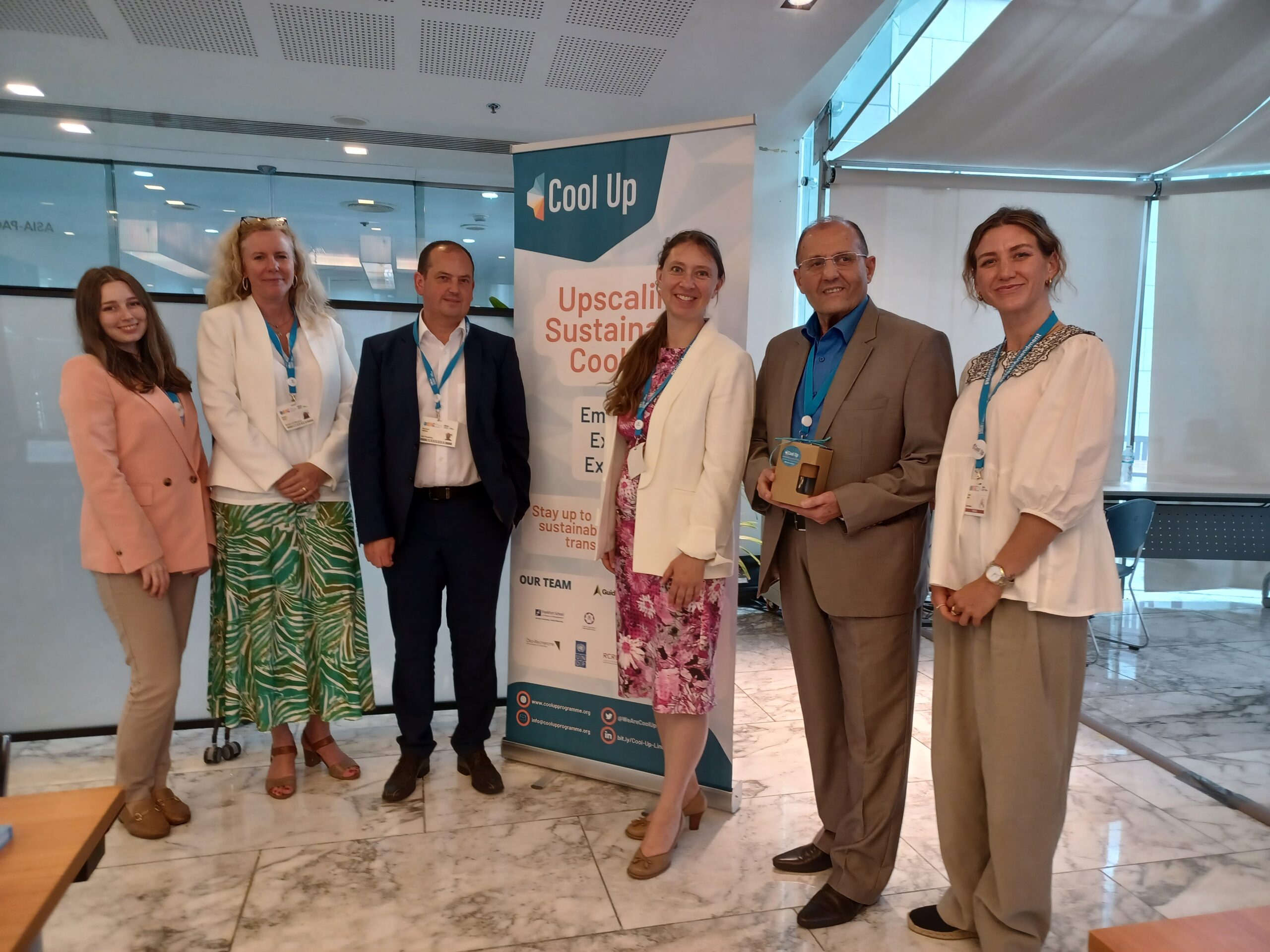03.07.2023, Bangkok
OEWG45 & Workshop on strengthening MP implementation
As part of the programme’s commitment to disseminate and enhance sustainable cooling solutions, Cool Up played a pivotal role in the Open-End Working Group (OEWG45) held in Bangkok in July 2023. The conference aimed to bolster the implementation of the Montreal Protocol and the Kigali Amendment, bringing together parties from various countries to assess progress, showcase achievements, and deliberate on proposals.
Insights from the OEWG45
During the event, delegates engaged in a series of discussions covering essential topics related to cooling solutions. One of the primary focuses was on strengthening the effective implementation and enforcement of the Montreal Protocol. Participants deliberated on vital issues, such as combatting illegal trade, improving licensing and quota systems, and effective implementation strategies.
The topics addressed during the conference included the illegal import of RACHP (Refrigeration, Air Conditioning, and Heat Pump) equipment, energy-efficient and low to zero GWP (Global Warming Potential) technologies, technical and economic assessment panel reports, and the impact of COVID-19 on HFC (Hydrofluorocarbon) consumption and exports. Each subject received thorough examination, with outcomes either agreed upon immediately or earmarked for presentation at MOP35 in October in Nairobi, Kenya.
Aside from the plenary sessions, the OEWG also organized a series of informative side events. Cool Up’s team took advantage of these opportunities and gained valuable insights into the development of National Cooling Action Plans (NCAPs), district cooling planning solutions, licensing options, and scientific interventions on climate change and sustainable cooling.
Results of the OEWG45 Conference
The OEWG45 concluded with fruitful results, identifying limitations in current legislations, and proposing improvements. One notable proposal was made by Cuba, advocating for a review of the Kigali Amendment’s implementation schedule due to disruptions in supply chains caused by the COVID-19 pandemic. Additionally, the parties reached a consensus on enforcing stricter controls on customs operations to prevent the dumping of inefficient cooling equipment into developing countries. Moreover, there was a collective commitment to prioritize capacity building and training opportunities.
The conference facilitated several contact groups, ensuring that discussions and progress continued even after the event.
Cool Up’s Contribution
On July 6th, Cool Up showcased its expertise by hosting a highly informative side event on “Modelling Tools in Policymaking.” The event focused on various tools available for policymakers in the cooling sector. These tools offer insights for the development of scenarios related to National Cooling Strategies/Plans, Kigali Implementation Plans (KIPs), Nationally Determined Contributions (NDCs), and other sector-specific plans.
The esteemed panel of speakers included Andrea Voigt from Cool Coalition, Bernhard Siegele from GCI (GIZ Proklima), Maria Pushkareva, and Barbara Gschrey from Öko-Recherche, and Jessica Weir from Guidehouse. The event was inaugurated with a warm welcome from Sebastian Schnatz from BMUV, who also provided a program overview.
Throughout the event, the speakers introduced essential considerations for selecting modelling tools and presented specific examples relevant to different countries. Cool Up’s team showcased their country-specific example of National Cooling Strategies (NCS) and National Cooling Action Plans (NCAP) developments in Jordan. Additionally, they made a significant announcement about their newest modelling tool, “CoolPaths: Sustainable Cooling Pathways”. This tool promises to be an invaluable resource for policymakers to assess the potential impacts of their legislations.
The OEWG45 conference in Bangkok provided a platform for Cool Up to not only contribute its expertise but also collaborate with various stakeholders. The bilateral meetings with NOU (National Ozone Unit) representatives and related associations like UNDP and UNEP further strengthened the partnership and commitment towards sustainable cooling solutions.

